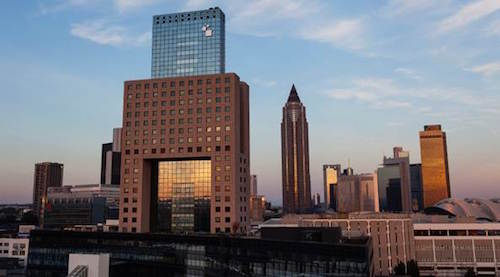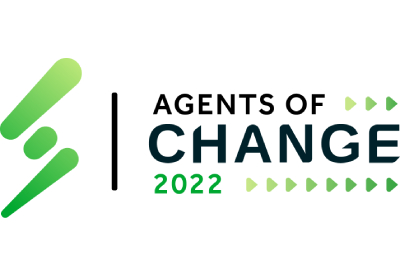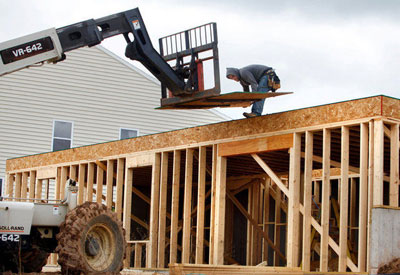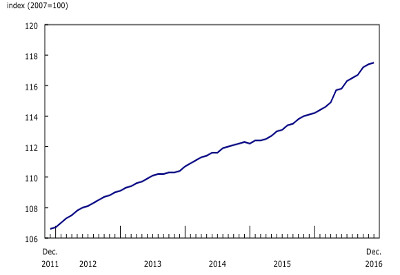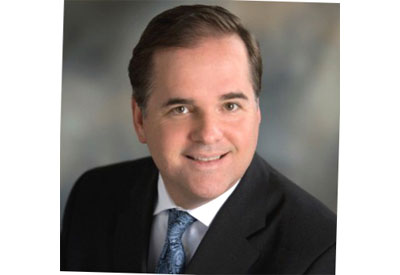October 3, 1948 — the Starting Point on the Road to Becoming a Global Player
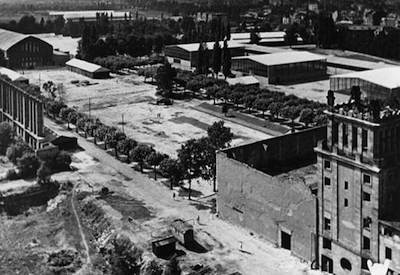
Oct 16, 2018
Trade fairs have been held in Frankfurt for the last 800 years or so. The roots of the modern-day Messe Frankfurt can be found in the Export Fair that was held in Frankfurt in 1948. This event, which will have taken place 70 years ago on October 3 of this year, was also a pioneering force behind the company’s sustainable international development. (Shown in photo: the Messe Frankfurt Exhibition grounds in 1948.)
From an economic and psychological perspective, the effects of this autumn trade fair — the first to be held after the Second World War — were enormous when it came to stimulating German foreign trade and reconstructing and expanding the exhibition grounds. And in helping Messe Frankfurt to develop into a market leader in the international trade fair sector.
October 3, 1948 saw the official opening of the Autumn Fair, and therefore the first event following the end of the Second World War. Some 2,000 exhibitors from 32 industrial sectors in Europe presented an international range that included all kinds of goods. One exhibitor at the very first event that is still a fixture at consumer goods fairs today is Koziol, a German company that produces award-winning, high-quality design objects for kitchens, bathrooms and living rooms. Stephan Koziol, CEO of the family company, says, “Our company has made very successful use of the international consumer goods fair in Frankfurt, from the very first event in 1948 right up to the present day. The trade fair is indispensable, particularly when it comes to securing new international customer contacts and cultivating existing ones.”
Messe Frankfurt’s final report on its 1948 Autumn Fair counted 300,000 visitors, some 1,500 of whom were buyers from Europe, North and South America, South Africa, Iran and India. Two visitors came from China. Orders in the amount of DM 600 million were placed, equivalent to at least 10% of the economic output of the three western zones of occupation at the time. Export orders were received from all over Western Europe, the USA and Canada, South America, Iran, South Africa, India, China, and Afghanistan. This paved the way for Messe Frankfurt’s rise to become one of the world’s leading trade fair companies.
In summer 1945, plans for rapidly rebuilding the exhibition grounds and introducing new trade fairs and exhibitions were already being discussed in Frankfurt, pushed ahead by mayor Walter Kolb. On December 4, 1946, Kolb took over as chairman of the company’s Supervisory Board. The concrete plan for an autumn fair had already been finalized. Following a Supervisory Board resolution, the first post-war Frankfurt trade fair was scheduled for autumn 1948. The interim time was used to rebuild the exhibition grounds, 95% of which had been destroyed during the war.
Working closely with the city and its people, 12,000 beds were viewed and inspected in private accommodations and new employees taken on. In 1948, the trade fair company had two managing directors and 35 employees.
As a result of the rapid economic growth and the importance of trade fairs as a reliable means of stimulating business, the increasing diversity of the products on offer created a trend towards greater specialization of trade fairs. As Wolfgang Marzin, President and Chief Executive Officer of Messe Frankfurt, sums up, “The ‘Frankfurt principle’ that had been established in the 1920s — whereby individual events were organised based on product groups — was developed systematically further. Product areas were able to support themselves and associations sought out independent platforms. Deliberately separating and focusing on strong industry sector themes brought new and independent trade fairs onto the market.” The trend was set in motion in 1959 by Interstoff, a trade fair for apparel fabrics, with the first ISH (Sanitation and Heating) following suit in 1960. With Heimtextil, home and household textiles received their own trade fair in 1971, spun off from the 1971 Spring Fair. When the IAA was cancelled in 1971, the Automechanika event for automotive workshops and suppliers was put together within a few short weeks. Musikmesse followed in 1980. In 1982, the company was renamed Messe Frankfurt GmbH. The 1990s saw major developments in consumer goods fairs. Light + Building came into being in 2000. While Messe Frankfurt Group events profiled themselves as the flagship events of their respective industry sectors, the guest event business also went from strength to strength at the Group’s Frankfurt base.
As Wolfgang Marzin emphasises, “With courage and foresight and the support of our shareholders, Messe Frankfurt was — in the wake of 1980s globalization — the first trade fair company to resolutely expand its internationalization and globalization strategy.” In 1987, Messe Frankfurt organized its first ever foreign trade fair: Interstoff Asia in Hong Kong. This early move into global growth markets paved the way for a development to which the company owes its leading international position. Messe Frankfurt is now the world’s highest-grossing trade fair company with its own exhibition grounds and 2,400 employees at 30 locations. With its high sector know-how, the company covers a wide brand portfolio with over 140 leading trade fair formats at some 50 locations worldwide. Messe Frankfurt invests successfully in developing new worldwide events and services – both physical and digital – and enhancing existing ones. The Frankfurt exhibition grounds are among the best in the world. Between 1998 and the current day alone, the company has invested more than a billion euros in its halls and infrastructure.
The photo below captures Messe Frankfurt today. Find out more: www.messefrankfurt.com/frankfurt/en.html
